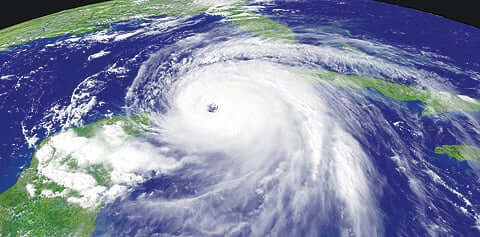
Caymanians are all too familiar with the need to prepare for Hurricanes, with Hurricane Ivan in 2004 being a “200-year storm” event that absolutely devastated Grand Cayman.
Preparation is one thing. You can prepare, as a Hurricane is a finite event that will have foreseeable outcomes depending on intensity levels.
Forecasting, though, is quite another thing. Despite decades and many millions of dollars, the leading forecasters in the world remain the first to acknowledge that forecasting is inexact. Yes, we know what regions of the world hurricanes and typhoons are likely to strike. Yes, we know the probability of them occurring in different parts of those regions at different times of year. Despite that, though, we cannot tell with any exactitude when Hurricanes will occur, where they will strike, how intense they will be.
I use this as a way of looking at Ebbs and Flows in a more general sense. You see, Hurricanes are very closely tied to weather cycles and, as the forecasters call them “super-cycles”. We know about annual seasonal influences that generate and strengthen hurricanes, we know about highly short term cycles of such things as current air pressure. In addition to that, though, there are multiple “super-cycles” that each occur over multi-year periods, some over fifty years in duration for each cycle.
All of these factors, all of these cycles, ebb and flow and have an influence on the weather at any given moment. The interaction between these many cycles are a key reason why Hurricane forecasting is so difficult.
My mind then turns to Covid. We are now over 18 months into the pandemic and, in the developed world (as it is those countries who have kept almost all vaccines to themselves, an issue of leadership to discuss another day!), we are approaching a year since the first age groups were vaccinated. We therefore now have new issues impacting the case, hospitalisation and death numbers in each country, one such one being the fading (over time) of efficacy of vaccinations in preventing people from contracting Covid. This impacted Israel a few months ago and now appears to be impacting the UK, as the lack of mask-wearing (yes, it has dropped right off) is not the only factor influence case rates that are far higher than the rest of Western Europe. If we look at cycles, though, we can predict that once the UK gets booster shots out, they will again be a few months ahead of other countries (as one must wait six months from dual vaccination for a third shot) just as their first vaccinations start to wane and cases rise. Let’s also throw in seasonal impacts (being indoors more and more) as another cycle, then we can look at the impacts of school terms and holidays as one more, then look at vaccination rates among teenagers (who are just now starting to be vaccinated in most countries). Many cycles, each of which will ebb and flow.
Now, why, on a blog that is generally about #OpenLeadership, a seemingly random post about forecasting, cycles, ebbs and flows? Well, I sat down to write this intending to simply observe that, in over four years of writing this daily blog, my writing has ebbed and flowed. Sometimes I get onto a leadership theme and write longer posts and several of them around that theme. Other times I can go through a period where nothing new and fresh is coming forwards, so I have learned to simply wait through that “ebb” in the writing cycle and so my daily posts can be short, simple, or simply (like this one, eclectic). Anyway, I sat down to write and, as often happens, when thinking of a story to start the post, my thoughts developed as I typed and things went in a different direction. Like weather, writing can be unpredictable 😉
